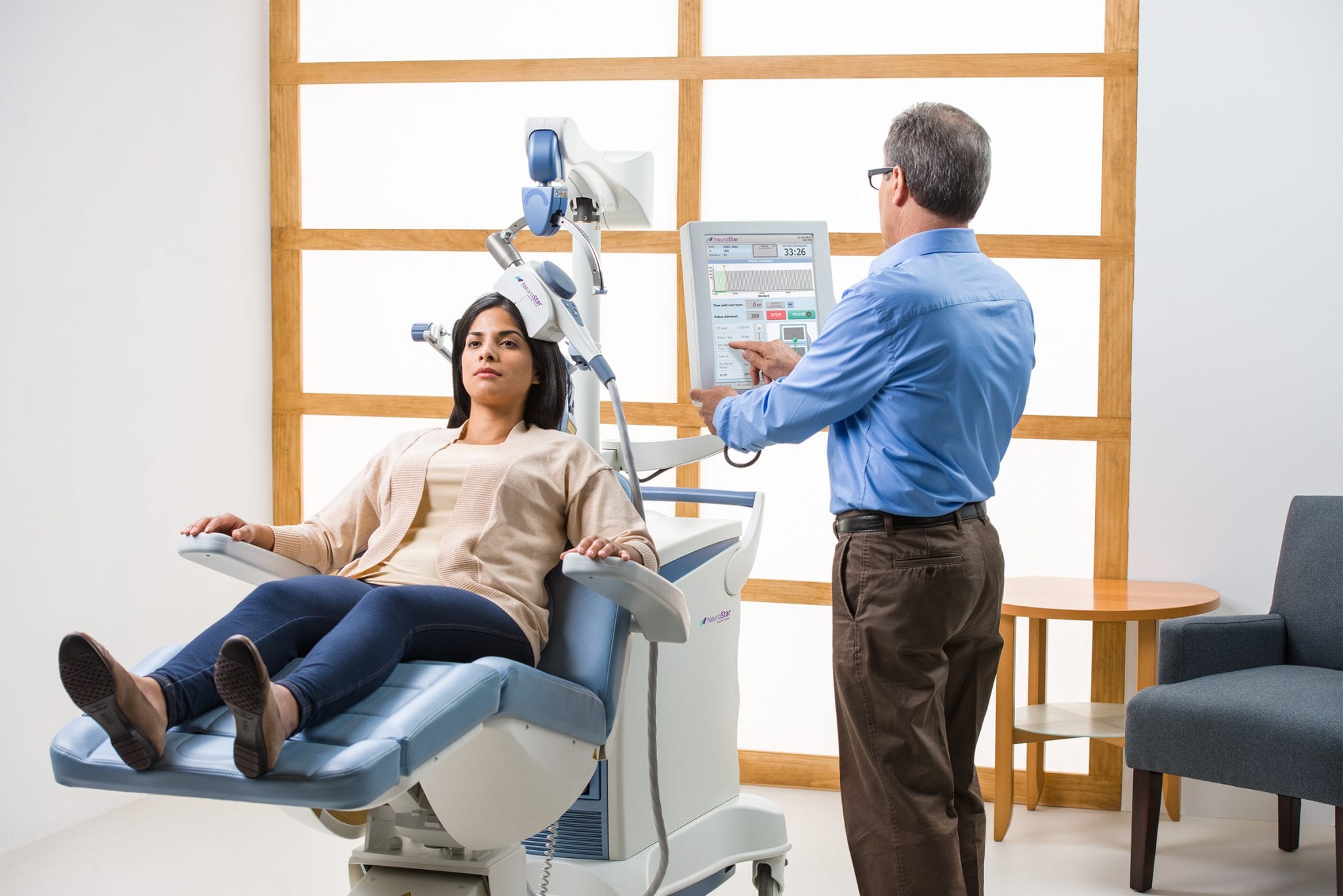When you or a loved one are experiencing symptoms of depression, it can feel like an insurmountable challenge to get back to feeling like yourself again. Many people with depression know about treatments like antidepressants and talk therapy, but the use of TMS therapy is usually not as well known. While there are a wide variety of useful techniques to treat depression, transcranial magnetic stimulation (TMS) treatment can be a very effective solution, and we offer it here at the TMS Center of the Lehigh Valley. To better understand what TMS is and how it can help treat clinical depression, let’s take a closer look.
What is TMS Therapy?
TMS stands for transcranial magnetic stimulation and is used to treat depression by stimulating the brain with non-invasive electromagnetic fields. This is very similar to the electromagnetic fields emitted by an MRI machine. During a TMS session, the magnetic field delivers very short pulses to specific areas of the brain that are clinically associated with depression. To effectively treat a person’s depressive symptoms, the magnetic field’s electric current stimulates the targeted area’s the brain cells (neurons). This results in changes that can be beneficial towards treating depression.
Advantages of TMS Therapy
TMS Therapy offers a wide range of benefits that make it a useful treatment for depression. In addition to providing potentially life-saving treatment for depression, TMS also delivers the following advantages:
- Noninvasive: Individuals need surgery to take advantage of TMS, and they can go about their daily lives as normal once a session ends. It also doesn’t include any anesthesia!
- Effective & Safe: While the success rates of TMS vary by condition, the available and ongoing research clearly shows that it is effective. Seizures are the most common serious side effect of TMS, but these are extremely rare. Statistically, a person’s risk of having a seizure from TMS is less than 0.01% for every session.
- Works with Other Treatments: TMS can easily work cooperatively with additional treatments for depression. In fact, TMS is often included with other treatment techniques, including medications, mental health therapy, and more.
Side Effects of TMS Therapy
One of the most important benefits of our NeuroStar TMS treatment is that it’s non-systemic (does not circulate in your blood). This means it avoids negative side effects like weight gain, sexual problems, stomach issues, dry mouth, and more. The most common side effects during TMS clinical trials were headache and scalp discomfort – usually mild to moderate – occurring less frequently after undergoing the first week of treatment. What’s more, this side effect occurred for less than 5% of patients treated with NeuroStar TMS Therapy. That means over 10,000 TMS treatments demonstrated its safety, with zero seizures occurring. Overall, the risk of seizures is no greater than what has been observed with oral antidepressant medications.
After TMS Procedures
After each treatment session, individuals can simply return to their normal daily routine, including getting back on the road. During clinical trials, most people who felt their depressive symptoms improved from NeuroStar TMS Therapy experienced such results by the fourth week of treatment. To help you consider whether TMS therapy is right for you, be sure to discuss your depression symptoms with your physician throughout the treatment course. If negative symptoms persist, you may want to consider other antidepressant options.
Especially in cases of severe or treatment-resistant depression, TMS offers life-saving potential with treatment that works. Researchers are also determining whether it can help many other brain-related conditions, expanding the possibilities of even more uses for the treatment.
Suffering from depression can be extraordinarily difficult for both individuals and family members. All in all, TMS is a highly-effective treatment option for individuals with depression. If you’re near Allentown, PA, our TMS facility has helped thousands of individuals dealing with depression every day. Thanks to our TMS treatment options, they can get the care they need to feel like themselves again. Contact us today for help treating your or a loved one’s depression!

